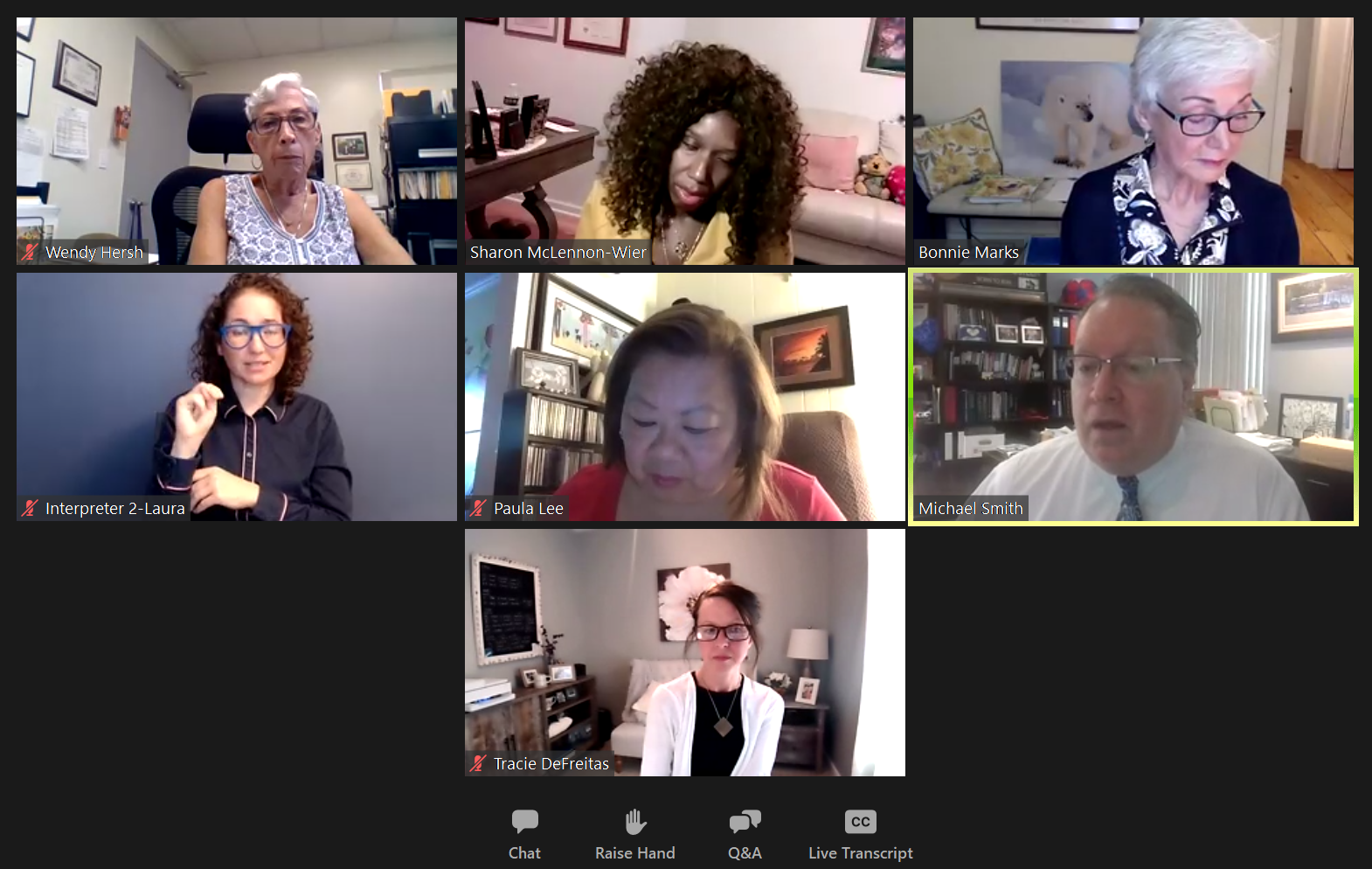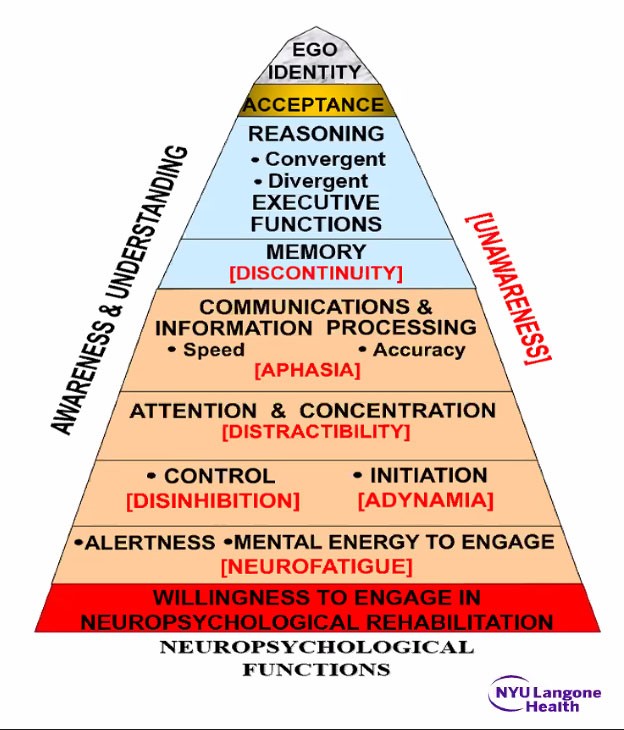Hits: 883

Michael J. Smith, President of Berkeley College (right, second from top) delivers opening remarks during “Long Haulers: Post-Acute COVID-19 Syndrome and the Aftermath of Cognitive Disability,” a webinar sponsored by Berkeley College and the National Rehabilitation Association’s Metropolitan New York Chapter on June 29, 2021.
WPCNR WESTCHESTER HEALTH. Special to WPCNR from Berkeley College, White Plains. July 1, 2021:
Many of the effects of COVID-19 are still unknown, but there are resources and support for those suffering long-term symptoms of the virus, said experts during “Long Haulers: Post-Acute COVID-19 Syndrome and the Aftermath of Cognitive Disability,” a webinar sponsored by Berkeley College and the National Rehabilitation Association’s Metropolitan New York Chapter on June 29, 2021. More than 600 attendees registered for the event, which focused on “long haulers” – those experiencing cognitive deficits after their initial infection from COVID-19.
“The truth is, we still don’t have all of the answers,” said Michael J. Smith, President of Berkeley College, in his opening remarks. “The one thing we do know is that COVID changed a lot about our lives. Our hope at Berkeley College is that by hosting this event, everyone gets a better understanding of how to navigate the important resources that exist, and that those with long hauler symptoms understand that they are not alone.”
Sharon McLennon-Wier, PhD, Director of Disability Services, Berkeley College, spoke about the stigma that those who contracted COVID-19 may be experiencing.
“It’s quite a psychological adjustment to how society is going to treat you, with a new label,” McLennon-Wier said. “Stigma is a very strong word – it’s a horrible word, because you feel that you are not good enough to compete in society. But a lot of what stigma is about is fear. When we look at stigma in regard to COVID-19, a lot of it is just not knowing what the expectations may be.”
Bonnie Marks, PsyD, Senior Psychologist, Brain Injury Day Treatment Program, Rusk Institute, spoke about the varied and persistent symptoms of COVID-19, including impaired concentration, loss of short-term memory, frequent headaches and fatigue.
“It ranges from mild to incapacitating,” Marks said. “There are a wide range of symptoms.”
Research by hospitals such as Memorial Sloan Kettering, Johns Hopkins, National Institutes of Health and others will continue to inform the conversation in the coming months and years, she added.

Photo Caption: Bonnie Marks, PsyD, Senior Psychologist, Brain Injury Day Treatment Program, Rusk Institute, presented a pyramid of potential long hauler symptoms from NYU Langone Health during “Long Haulers: Post-Acute COVID-19 Syndrome and the Aftermath of Cognitive Disability,” a webinar sponsored by Berkeley College and the National Rehabilitation Association’s Metropolitan New York Chapter on June 29, 2021.
Tracie DeFreitas, Principal Consultant, ADA Specialist, Job Accommodation Network (JAN), spoke about resources for long haulers.
“It’s important to learn about the Americans with Disabilities Act and whether the law applies to you,” DeFreitas said. “This is a law that might afford you the possibility of adjustments at work – reasonable accommodations that might help you address some of the limitations you are experiencing in terms of performing job duties.”
